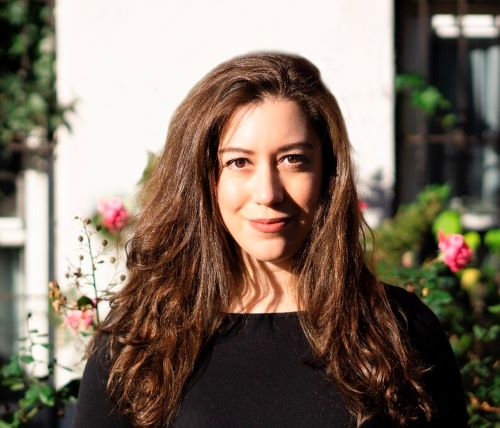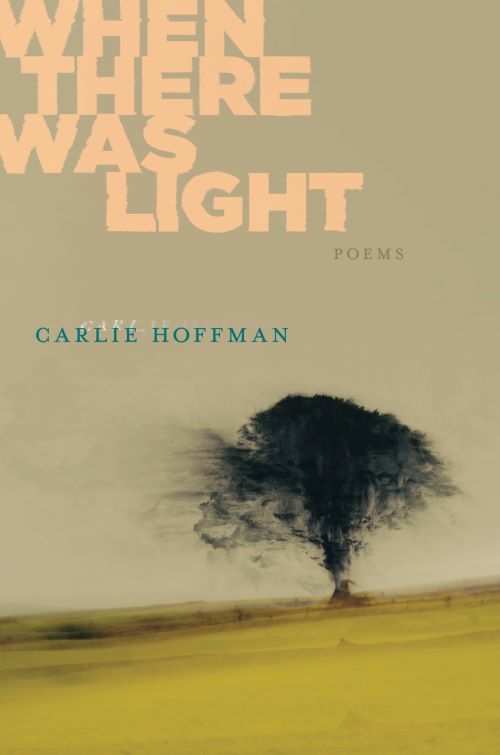What these girls did I could not: black tightsin June, knowing which spoon for goat’s milk,which for slow-cooked stew, pray from rightto left. Grace: the way they prayedin long sleeves in sunlight, hairlike wet grass, clean palms warm and paleas bread. I know now what I meant to ask:Can I touch your hand, though what I didwas bite. There must be a word for the lackof words for the things we have felt allour lives, but couldn’t name, a namefor the hymn that moves our blood,old and dire, like the rainthat once shined each green bladeof that town, not each girl, but the grassthat blooms and blooms and blooms.
Regardless, a Bat Mitzvah’d Woman Cannot Make Minion
Carlie Hoffman
FAIR LAWN, NJ
Feature Date
- September 20, 2023
Series
Selected By
Share This Poem
Print This Poem
“Regardless, a Bat Mitzvah’d Woman Cannot Make Minion” from When There Was Light (c) 2023 by Carlie Hoffman.
Appears with permission of Four Way Books.
All rights reserved.
Reproduced by Poetry Daily with permission.

Carlie Hoffman is the author of When There Was Light (Four Way Books, 2023) and This Alaska (Four Way Books, 2021), winner of the NCPA Gold Award in poetry and a finalist for the Foreword Indies Book of the Year Award. She is the translator of Weiße Schatten / White Shadows: Anneliese Hager (Atelier Éditions, 2023). Carlie’s honors include the 92Y “Discovery” / Boston Review poetry prize and a Poets & Writers Amy Award, and her work has been published in Los Angeles Review of Books, Kenyon Review, Poetry Daily, Boston Review, New England Review, Jewish Currents and other publications. Carlie lives in Brooklyn, where she edits Small Orange Journal. She is a lecturer of creative writing at the State University of New York at Purchase.
“Carlie Hoffman’s poems see pain, danger, regret, remorse, mercy in ways other documentation cannot. Sometimes a balm, other times a warning, often a record, most often all at once. Here is how Hoffman opens a few poems: ‘February, worst month, The last time, When I was suffering, I’ve lost you again, It seems to me a blessing, Every season is good for killing girls.’ Hoffman’s poems accept their fierce conflicts and struggle. Her reaching for a way to say in words never ends. Near the book’s end Hoffman asks a question. ‘Will I ever stop being angry / for never hearing my family’s language?’ Imagine how many ways to take that question. In another poem Hoffman says, ‘Somehow, American,’ and it sums up an almost unbearable too much. This is a beautiful book, willing to look with love, the kind poetry provides, deep into what our families do and mean to us, what they give us, what they take away.”
—Dara Barrois/Dixon
“’It's important to walk like this: through the places where the vanished people of our lives have walked’ writes Carlie Hoffman in her astonishing new collection, When There Was Light. In poems resounding with absence and loss, Hoffman journeys through Poland and Germany to a farm in upstate New York to investigate her roots— roots shattered by war, displacement and ‘the violet, ancient noise’ of a family’s silence. In image after throat-grabbing image, she makes the damage to successive generations visceral. A photo album glows ‘like a severed shoulder of a man.’ Of the languages lost to her, she writes, ‘my beheaded tongue Hebrew tongue Russian tongue I comprehend nothing…’ When There Was Light is a deeply moving personal reckoning. But its themes are universal: history, memory, identity, the struggle to understand our lives. ‘The world has so many rooms’ she writes, ‘it's impossible to pinpoint where mine begins.’”
—Ellen Bass
"I am in awe of the way in which in Carlie Hoffman’s poetry image and word espouse themselves, braid each other into not a surrealist image, but into what Jerome Rothenberg once called a 'deep image.' This comes from a very clear-eyed, deep-eared stillness she is able to work from even if or when at the center of this / her world’s turmoil. Or as she puts it, 'Girl at the threshold / catching the light with her hands.' This is quest-writing, the quest of poetry, so well laid out in these lines: 'There must be a word for the lack / of words for the things we have felt all / our lives, but couldn't name.'"
—Pierre Joris
Poetry Daily Depends on You
With your support, we make reading the best contemporary poetry a treasured daily experience. Consider a contribution today.




